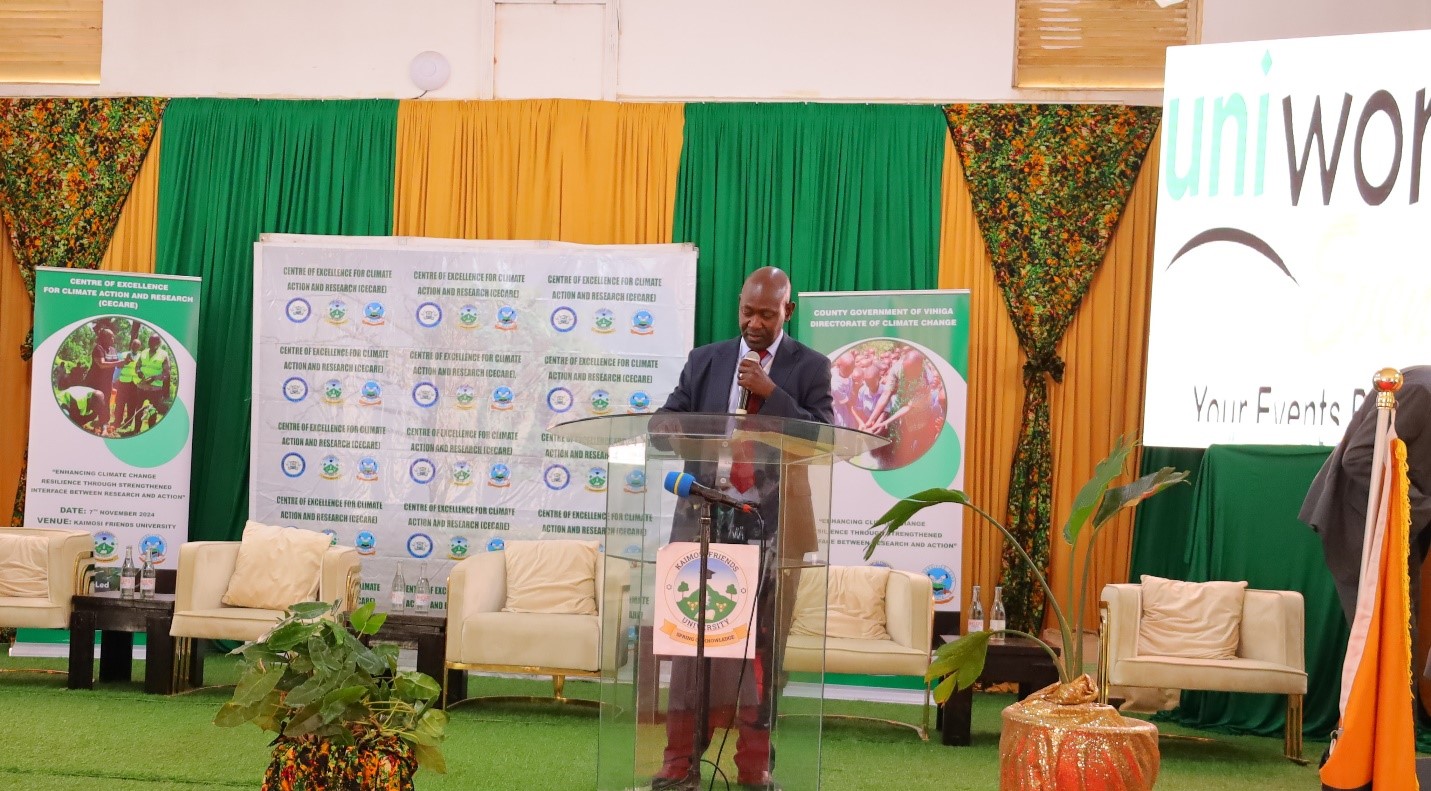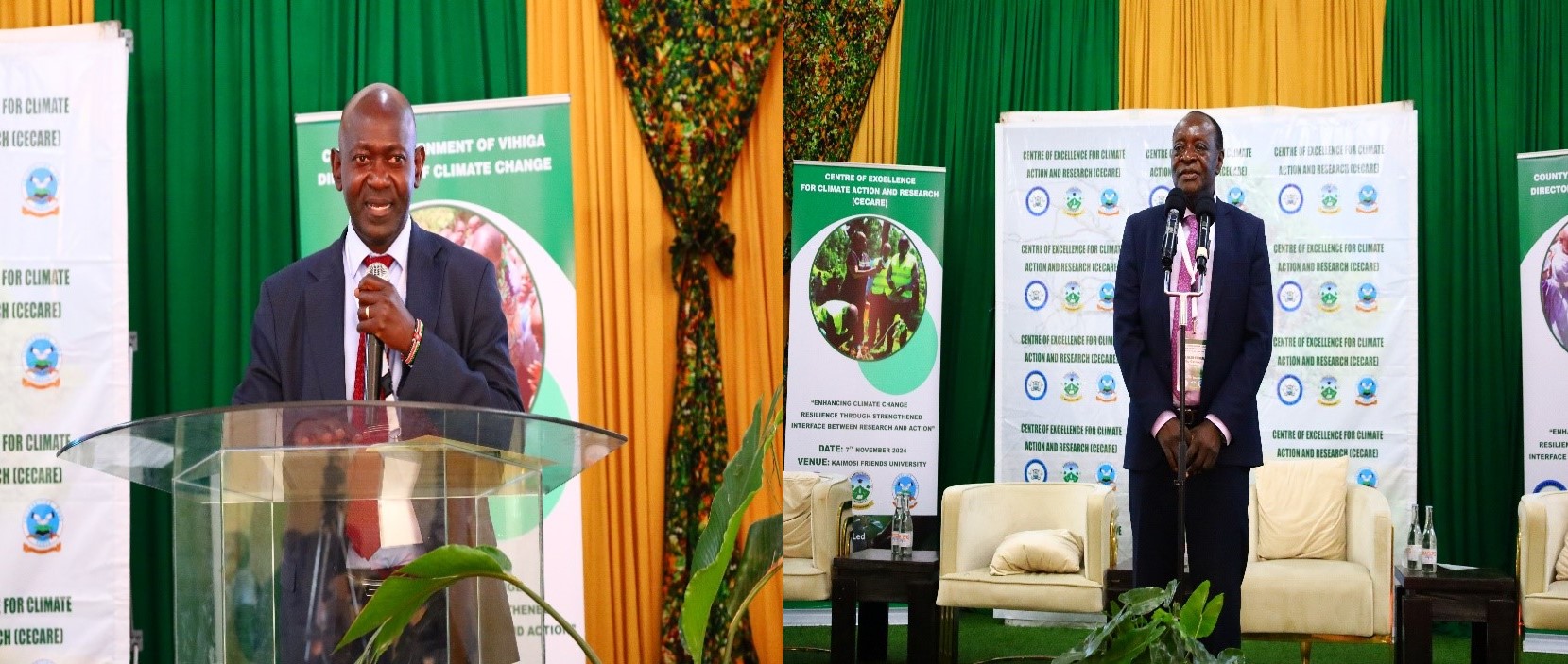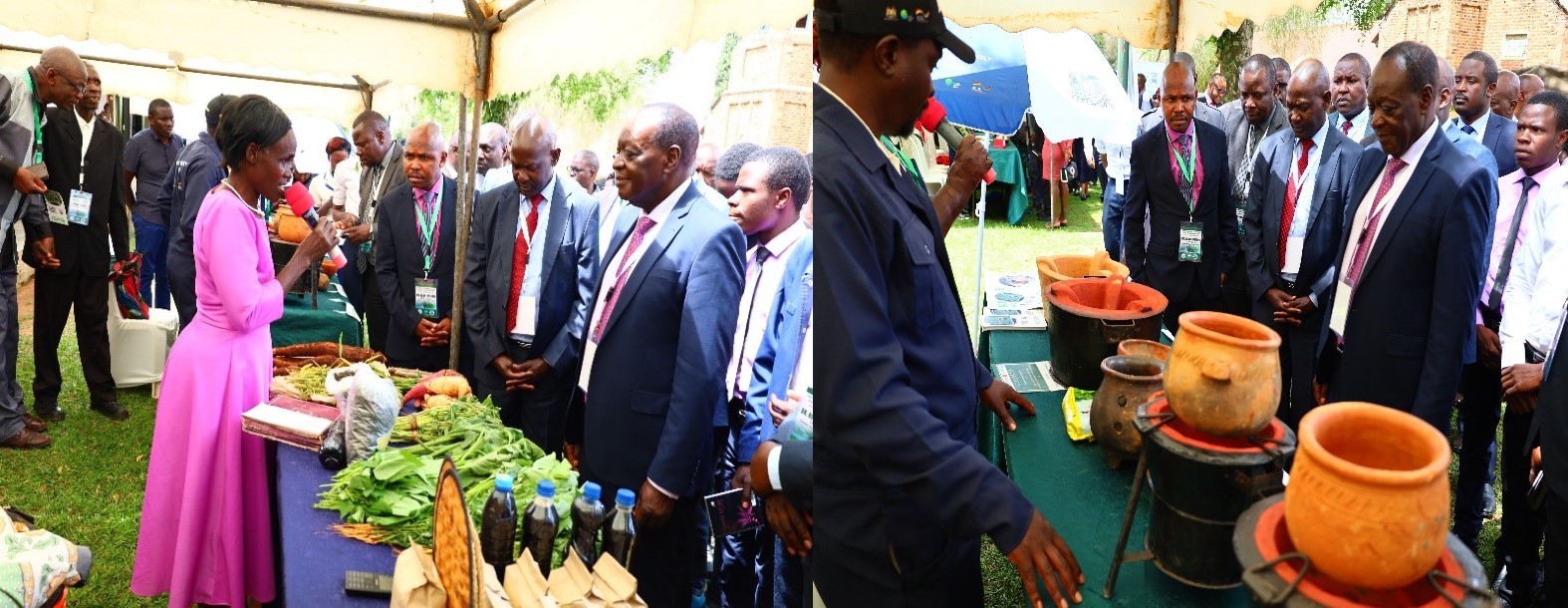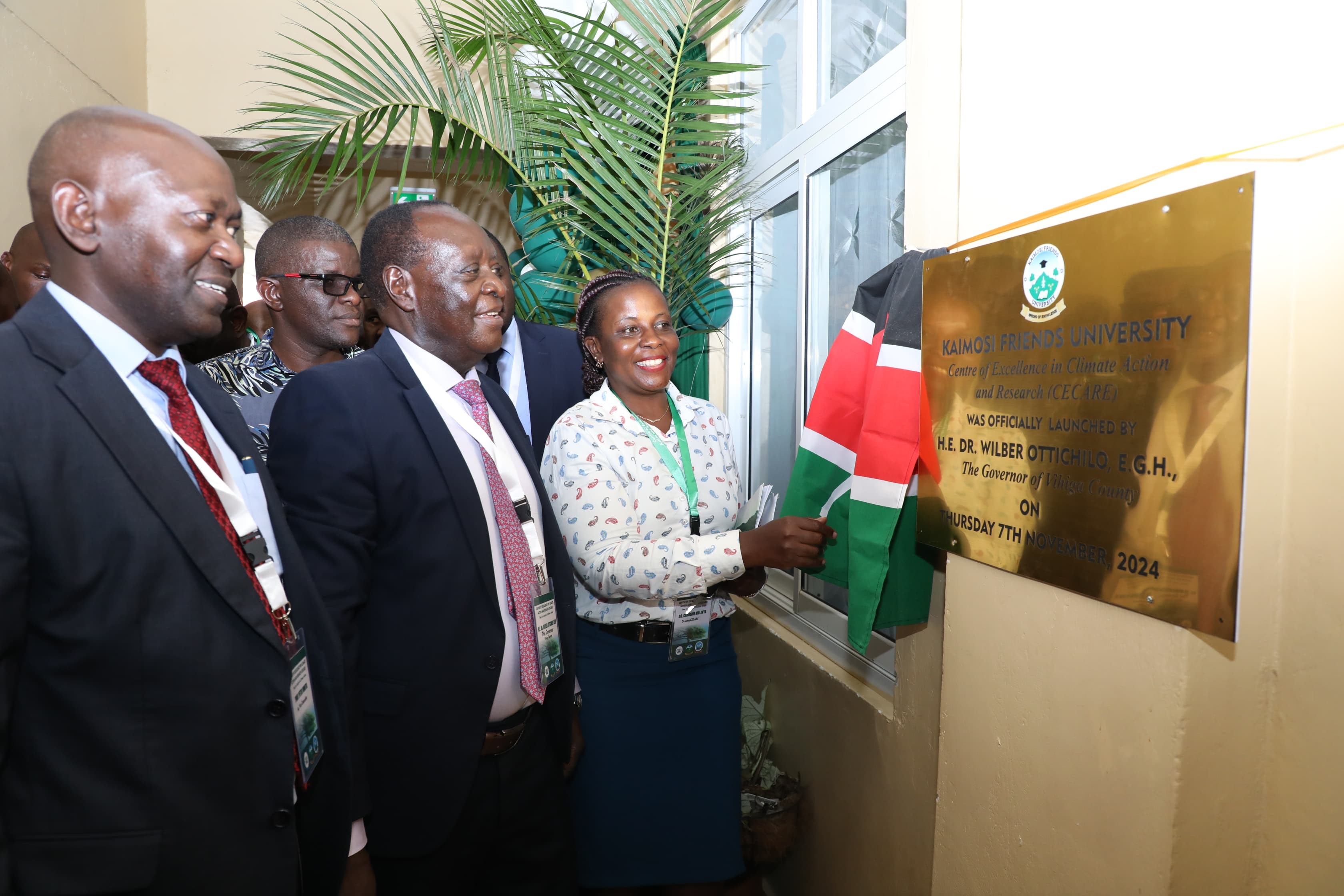
In a bold step to combat the growing challenges of climate change, Kaimosi Friends University (KAFU), in partnership with the County Government of Vihiga and the University Fund (UF), has established the Centre of Excellence on Climate Action and Research (CECARE). Officially launched on November 7, 2024, at KAFU, the Centre is poised to play a critical role in shaping climate policy, driving research, and developing actionable solutions in key areas such as adaptation, mitigation, and climate financing.
The launch event followed the inaugural Climate Change Conference held earlier in the day, which explored ways to enhance inter-county and multi-stakeholder collaborations toward accelerating climate action, environmental conservation, and restoration. The conference provided a platform for government officials, researchers, and environmental advocates to discuss local and regional solutions to the climate crisis, setting the stage for CECARE's mission to drive both local and global climate action.
The event brought together key stakeholders, including Governor Wilber Khasilwa Ottichilo of Vihiga County, a long-time advocate for climate action, as well as representatives from UF and other local and international partners. CECARE is envisioned as a dynamic hub for climate-related research, capacity building, and policy engagement. Its creation reflects a shared commitment among local and global partners to tackle climate change while equipping communities with the knowledge and tools needed to adapt, mitigate, and thrive in an increasingly unpredictable world.

In his welcoming address, KAFU’s Acting Vice Chancellor, Prof. Peter N. Mwita, underscored the importance of the new Centre, noting that it will serve as a hub for interdisciplinary research, combining expertise from fields such as environmental science, engineering, economics, and agriculture to address the multifaceted challenges of climate change.
Kaimosi Friends University (KAFU) recognizes climate change as one of the most pressing issues of our time, impacting not only the environment but also our economies and societies. In response to this global challenge, the University has embedded key Sustainable Development Goals (SDGs) into its Strategic Plan for 2023-2027. These include SDG 7: Clean Energy, focusing on reducing the university's carbon footprint and advancing sustainable energy solutions, and SDG 13: Climate Action, which promotes sustainable practices on campus, such as reducing emissions and conserving resources.
As part of its broader environmental mandate, KAFU aims to lead efforts in creating climate-resilient communities through initiatives like tree planting, waste management, and recycling, all while aligning with the African Union’s Agenda 2063. "As an academic institution, it is our responsibility to respond with innovative research and practical solutions that inspire action," said Acting Vice Chancellor, Prof. Peter N. Mwita. "The Centre of Excellence on Climate Action and Research is a critical step in this direction, helping to address the social, environmental, and economic challenges of climate change for current and future generations."

Governor Ottichilo hailed the launch of CECARE as a milestone, acknowledging the hard work of the steering committee that had driven the project to fruition. He emphasized that the Centre is a reflection of the county's deep concern for the impact of climate change on both local and global levels. "We are here today because we are concerned about the impact that climate change has on the life of our planet," Ottichilo remarked. He outlined that the county had already taken significant steps to address the challenges posed by climate change, noting that the flexible, proactive approach taken by local governments is essential for both mitigation and adaptation. The Governor also stressed the importance of leveraging opportunities that climate change presents, pointing to the strategic importance of CECARE in addressing these challenges.
In his speech, the Governor issued a call to action for students, urging them to take leadership roles in climate change research and initiatives: "I challenge you, the students of Kaimosi Friends University, to take up leadership in the matters of climate change. You are the future leaders, and this Centre must empower you to innovate, engage in critical research, and drive action." Ottichilo also highlighted that the University was the right place for the establishment of CECARE, describing it as a "cradle of knowledge" and an ideal institution for developing the next generation of climate leaders. He further suggested that KAFU should integrate climate change into its curriculum to ensure the Centre’s work remains closely aligned with academic programs and contributes to building a robust, sustainable future.

The Governor also pointed out that CECARE is not only a local initiative but one with broader regional significance. "The establishment of CECARE is strategic for the Lake Region Economic Bloc, which brings together 14 counties in western Kenya," he noted, stressing that climate change is a critical issue for this region. Ottichilo emphasized that local initiatives must work together to mitigate the effects of climate change and leverage opportunities for sustainable development, making CECARE an important regional asset. He also indicated that a strategic plan would be developed to guide the Centre’s operations and ensure its effectiveness in meeting its goals.
The Centre will also work to promote climate-smart technologies, create green jobs, and support sustainable livelihoods in the region. As a key part of its mandate, CECARE will contribute to the achievement of the Sustainable Development Goals (SDGs), particularly SDG 7 (Clean Energy) and SDG 13 (Climate Action). By fostering collaboration with local governments, non-governmental organizations, and international research institutions, the Centre will work to develop solutions that are locally relevant and globally significant. The launch of CECARE marks the beginning of a concerted effort to address climate change through research, education, and innovation, creating lasting impact for both the Lake Region and the broader global community.

